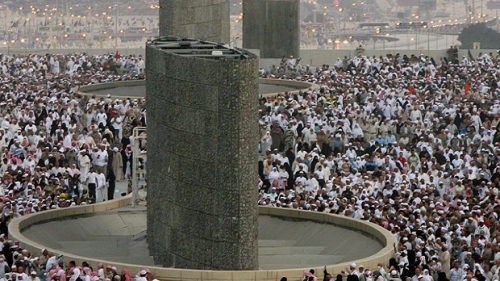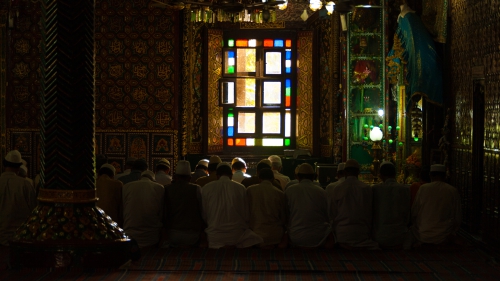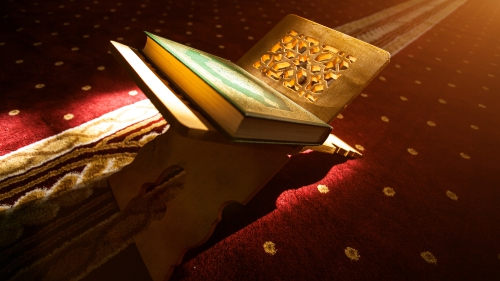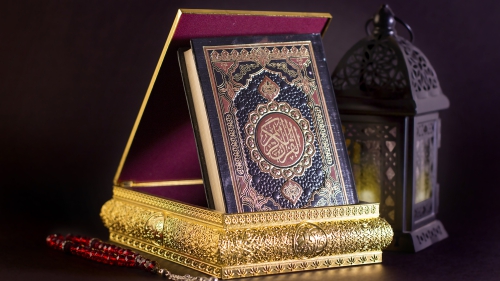An Islamic education for all?
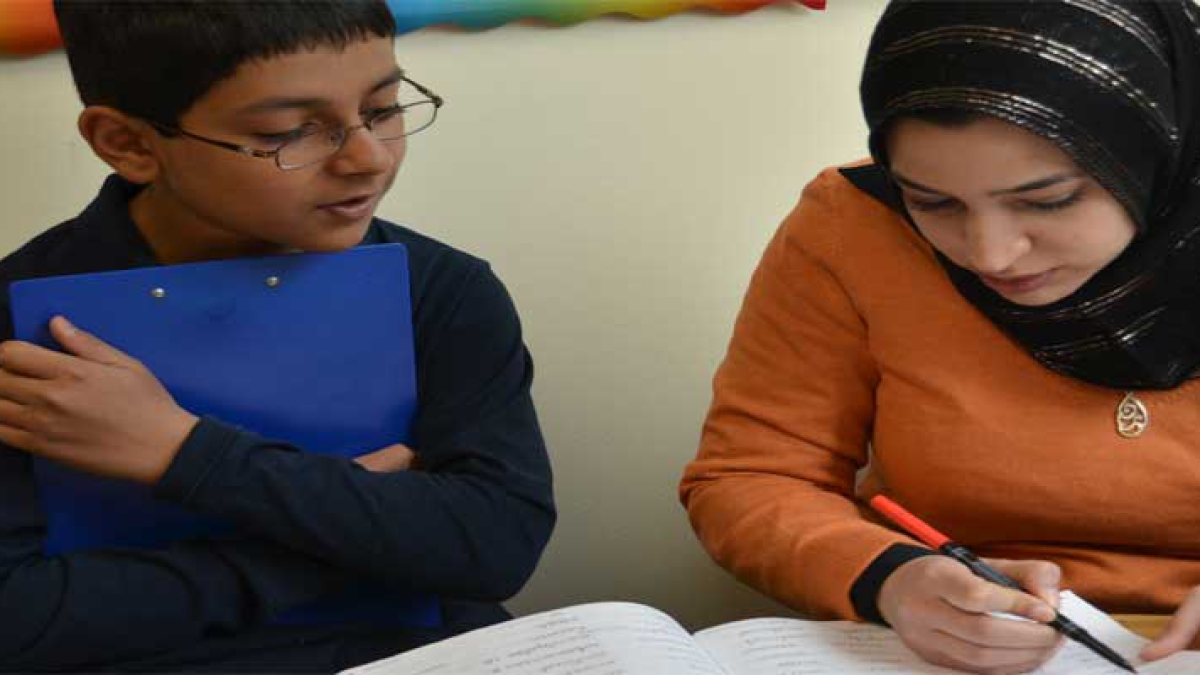
In the debate about education, religion is seen as essentially reactionary with the aim of indoctrinating children and young people into a set of unreasoned if not irrational beliefs.
But in our currently barren intellectual state and with a political climate that mistrusts debate and demands compliance, education has been shackled to standards and competencies with a very narrow instrumentalist view of the curriculum. So education has become the constraining factor and perhaps religion may offer a way forward?
A religious perspective (Islamic or otherwise) on education provides us with a paradox. "Educere" from the Latin means to lead out (to liberate) whereas "religio" means to constrain. Thus religious education has often meant to indoctrinate the young people into the rules of a particular faith.
I propose however that education in the traditional Islamic discourse, going back to the principles of education in Islamic text and the practice of Muslim thinkers and scholars in the heyday of Islamic civilization, far from harnessing the mind to restrict it, supports freeing the mind through harnessing a person's intellectual and emotional capabilities in a framework of reasoned enquiry and scholarly study.
Until recently "education" in its true sense has been missing from the debate. What passes for 'education' is little more than a social engineering agenda. Control of personal behavior has been the focus of education with a view that kids are out of control and it's the job of schools and teachers to make the "buggers" behave. Teachers have lost their autonomy and teacher education has become one of training teachers to perform, not to think.
That sounds quite traditional and, some may think, Islamic. Surely Islam with its strict rules on dress, food, sexual behavior seeks to control in a more draconian way? Actually, as far as education is concerned, Islam is traditional in a way that may surprise you.
There are seven broad principles that define Islam's approach to education:
(1) First and foremost Islam values Knowledge as an objective universal truth (Haqq). It is not bound to culture or religion. It exists "out there" to be discovered. And discovering knowledge is a way of entering faith. Al-Haqq is one of God's names meaning absolute truth. So there is an objective truth that is independent of faith, yet leads to faith. The Quran states that those who come to "know" the measure of God are the "knowledgeable".
(2) Seeking this Knowledge through rational empirical investigation is the second principle. We have to be active seekers/learners. Muslims are instructed to seek truth through a spirit of inquiry and discovery. We are enjoined to study ourselves and the world around us.
(3) Islam has made seeking knowledge an obligation on every individual. Ignorance is not an excuse. Muslims are encouraged to 'seek knowledge all the way to China' - very contemporary! Knowledge is not ethnocentric. It is not "our" knowledge; it is universal knowledge that can be accessed by all regardless of time and place.
(4) Islam recognizes an ethical unity of knowledge. The pursuit of knowledge in a vacuum, devoid of purpose, is a deviation from the truth (Haqq). Knowledge is an integrated reality essentially and existentially; the facts of the empirical world are signs and symbols operating in a network of conceptual relations that altogether describe an organic unity.
(5) The value of the written word and the importance of the book. The first word revealed is Islam was the command "Read!". The Quran is central to every Muslim's life and as the first of the books, but not the only one, reading is central to the faith. Knowledge is to be found in the scholarly works across nations and ages.
(6) Transmission and the centrality of the teacher. 'The ink of the scholar is holier than the blood of the martyr'. Scholars and Teachers hold a very important social position in Islam. Islam states that 'The best of you are those who learn (a) knowledge and then teach it'.
(7) Action. Knowledge has to be acknowledged by recognizing the true nature and relationship of people and things. Recognition of the truth in both domains, the ontological and the theological, necessitates in the human being conduct that conforms to that truth. The pursuit of knowledge should lead to the emancipation of the human.
An Islamic approach to education would focus on knowledge, the need to enquire and experiment. It would make the seeking of objective knowledge a moral obligation on every individual and provide an ethical unity to that knowledge. It would venerate learning from books and the teacher. Finally, it would necessitate in every individual action to ensure human progress.
An education built on Islamic principles would be a triumph over contemporary instrumentalist social engineering that passes for education.
Throughout October and November, The Independent Online is partnering with the Battle of Ideas festival to present a series of guest blogs from festival speakers on the key questions of our time.
Source: Rania Hafez for The Independent. Sr. Hafez is Director of Post Compulsory Education at the University of East London and founder of the professional network Muslim Women in Education. Her Battle in Print, entitled An Islamic education for all?, can be viewed here.
Views: 7816
Related Suggestions
what is basis of this speech?
1. Helps prevent juvenile delinquincy and promotes marital compatibility owing to non-dichotomous value syaytem.
2. Allow children to make a better choice in areas of drinking, gambling, pre & extra marital relationships because they could be made to understand the "Giving Spectrum".
3. By understanding God better, they would be able to understand their parents better.
4. By becoming creatively disciplined.
5. By becoming generous, forgiving and forbearing human beings.
6. By growing a backbone to stand up for the Truth.
7. By becoming inclusive, diversity conscious, and fair minded.
8. By remaining psychologically sound under most trying of circumstances.
9. By being able to recognize hypocrisy at all ages and in all its forms.
10. By not being judgmental and becoming process oriented.
11. By becoming materialists with a spiritual side.
12. Because religion accepts various elements of secularism, but secularism is unable to do the same.
Even considering the grossly unfair rhetoric, the article still leaves an infidel like myself leery. While the author emphasizes those aspects of the Islamic educational ideal that have clear correlates in secular thought, he/she completely neglects to explain why non-believers should believe that religious-only knowledge will not be forced on them or their children. An utter failure of an article.









